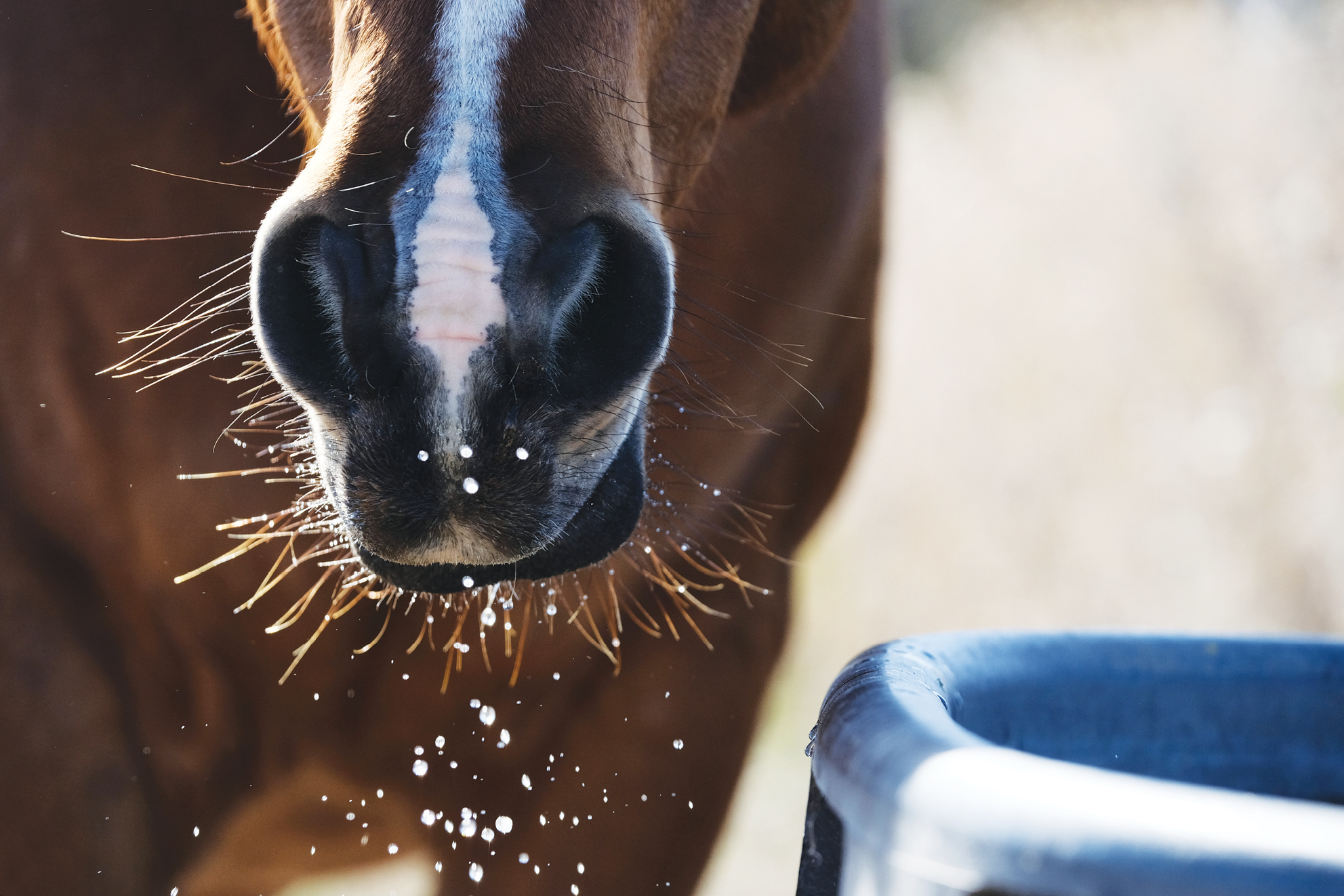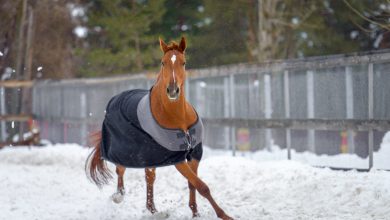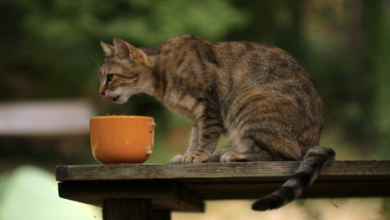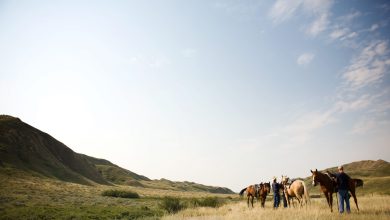
Electrolytes are essential minerals found in blood, sweat, and urine.
The main electrolytes are sodium, potassium, magnesium, phosphate, and chloride. They play a key role in balancing cell fluid levels and regulating blood pressure. When electrolytes, and especially sodium, are lost through sweating, a horse can experience dehydration symptoms including thirst, fatigue, and muscle cramping.

Your horse’s regular feed and water are usually enough to rebalance their system by themselves. But there are occasions when it might take a little more. This is where electrolyte supplements come in. Supplements speed up the water-electrolyte regulation process. Especially for performance horses that need to recover quickly from one day to the next. The most common use of electrolytes is during or after very intense exercise and when the environment is hot. In both cases, there’s a great deal of electrolyte loss, particularly sodium. Similarly, if your horse is sick and has prolonged diarrhea or is sweating, a supplement can be helpful to rebalance fluid levels.
Confusion and risk come when electrolytes are given as a “just in case” measure when they aren’t needed. Too much can certainly be a bad thing. Potassium, for example, is one of the primary ingredients in most electrolyte supplements. And too much of it can increase dehydration. Extreme dehydration can cause your horse to tie up and colic. Usually, water is enough for most horses after most exercise and in most weather conditions. If you’re concerned about your horse’s water consumption, instead of choosing a full electrolyte supplement, use salt only to increase their natural desire to drink.
Paste, Pellet, or Powder

You’ll find that electrolyte supplements come in three forms: Paste, powder, and pellet. The one you choose will depend on your use and your horse’s preference.
Paste and pellets, such as SmartPak’s SmartLytes, are easy to monitor how much is consumed and to administer, Mostly because they’re more palatable. The powder version is a great option for a colicky horse that you want to encourage to drink water without the risk of over-supplementing. Since powder can be unpalatable to some horses, be sure to provide it alongside plain drinking water, so they aren’t completely turned off to their primary drinking supply.
Avoiding Over-Supplementation
The goal of supplementation is rehydration. Rehydration requires water. That’s why it’s essential to only use supplements when your horse can drink.
Avoid supplementing at least 24 hours before travel or a trail ride, when water is typically less available.
If your horse is severely dehydrated from excessive work in a hot, humid climate, consult with your veterinarian and consider the safest way to give electrolytes.




